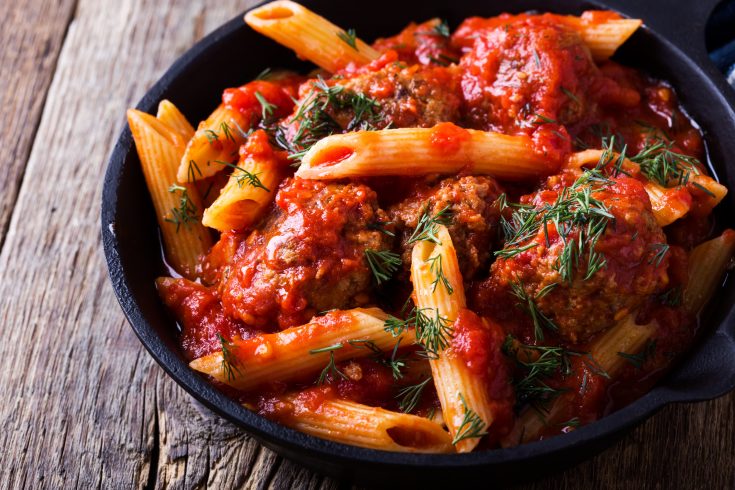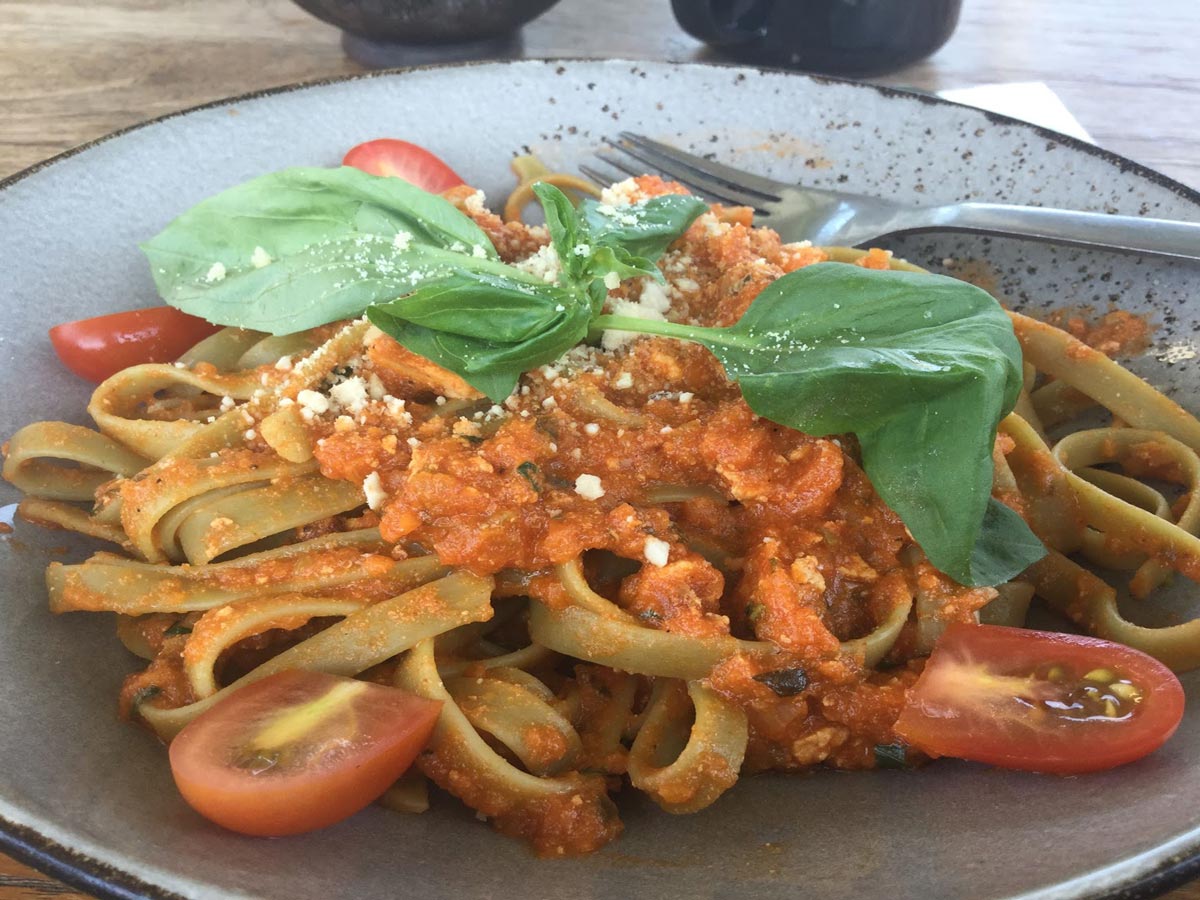Vegan Italian food is a burgeoning culinary trend that combines the rich flavors of traditional Italian cuisine with the ethical principles of veganism. This enticing fusion offers a tantalizing adventure for the taste buds while aligning with a compassionate lifestyle.
As we delve into the world of vegan Italian cuisine, we’ll explore its historical roots, essential ingredients, innovative cooking techniques, and the ethical considerations that shape this unique culinary experience.
Vegan Italian Cuisine

Vegan Italian cuisine is a style of cooking that emphasizes plant-based ingredients, while still incorporating the traditional flavors and techniques of Italian cuisine. It has a long history, dating back to the Middle Ages, and has evolved over time to reflect the changing dietary needs and preferences of the Italian people.
Historical Roots of Veganism in Italian Cuisine
The origins of veganism in Italian cuisine can be traced back to the Middle Ages, when religious fasting practices led to the development of meatless dishes. These dishes were often based on legumes, vegetables, and grains, and were typically simple and rustic in nature.
Over time, these meatless dishes became more sophisticated, and by the Renaissance, they were being enjoyed by all levels of society. This was due in part to the influence of humanism, which emphasized the importance of individual choice and the pursuit of pleasure.
Evolution of Vegan Italian Dishes
The evolution of vegan Italian dishes has been influenced by a number of factors, including the availability of new ingredients, the changing dietary needs of the Italian people, and the rise of vegetarianism and veganism as ethical and environmental movements.
In the 19th century, the introduction of new ingredients from the Americas, such as tomatoes, potatoes, and corn, led to the development of new vegan dishes. These dishes were often hearty and flavorful, and they quickly became popular with the Italian people.
In the 20th century, the rise of vegetarianism and veganism as ethical and environmental movements led to a renewed interest in vegan Italian cuisine. This interest has continued to grow in recent years, and today there are many vegan Italian restaurants and cookbooks available.
Key Influences and Cultural Factors
The key influences on vegan Italian cuisine include the following:
- Religious fasting practices
- Humanism
- The availability of new ingredients
- The changing dietary needs of the Italian people
- The rise of vegetarianism and veganism as ethical and environmental movements
These influences have shaped the development of vegan Italian cuisine, and they continue to influence it today.
Ingredients and Techniques: The Foundation of Vegan Italian Cooking

Vegan Italian cuisine, while rooted in traditional Italian culinary practices, stands apart with its innovative use of plant-based ingredients and techniques. By exploring the essential components and methods employed, we gain a deeper understanding of the artistry and authenticity that define vegan Italian cooking.
Essential Ingredients, Vegan italian food
The heart of vegan Italian cooking lies in its carefully curated selection of ingredients. Plant-based alternatives to classic Italian staples, such as tofu, tempeh, seitan, and lentils, provide the foundation for hearty and flavorful dishes. Vegetables like tomatoes, bell peppers, onions, and leafy greens add vibrant colors, textures, and essential nutrients.
Vegan cheeses, crafted from plant-based milks, offer a rich and satisfying substitute for traditional dairy products.
Techniques and Methods
Beyond the ingredients, the techniques and methods employed in vegan Italian cooking are equally crucial. Traditional Italian cooking techniques, such as sautéing, roasting, and braising, are skillfully adapted to accommodate plant-based ingredients. Chefs utilize a variety of cooking methods to enhance flavors, including marinating, infusing, and slow-cooking to develop depth and complexity.
Vegan Substitutes for Traditional Ingredients
In the pursuit of authenticity, vegan Italian cuisine relies on creative substitutions for traditional ingredients. Tofu, with its neutral flavor and firm texture, serves as a versatile substitute for meat or poultry in dishes like vegan lasagna or “chicken” parmigiana.
Nutritional yeast provides a cheesy flavor and umami, mimicking the richness of Parmesan cheese. Plant-based milks, such as almond milk or soy milk, offer a creamy alternative to dairy in sauces, soups, and desserts.
Traditional Italian Dishes with a Vegan Twist
Veganism has gained popularity in recent years, leading to a growing demand for plant-based alternatives to traditional dishes. Italian cuisine, known for its rich flavors and diverse dishes, has also embraced this trend, resulting in a range of vegan-friendly options that offer a unique culinary experience.
This section explores some classic Italian dishes and provides vegan alternatives, highlighting the cooking methods used and the nutritional benefits of these plant-based creations.
Vegan Substitutes and Cooking Methods
Creating vegan versions of Italian dishes involves finding suitable substitutes for animal-based ingredients while maintaining the authentic flavors and textures of the original dishes.
| Original Dish | Vegan Substitute | Vegan Cooking Method | Nutritional Benefits |
|---|---|---|---|
| Spaghetti Bolognese | Lentils, mushrooms, or soy crumbles | Sautéed in a rich tomato sauce | High in protein, fiber, and iron |
| Lasagna | Vegan cheese, tofu ricotta, and plant-based béchamel | Layered and baked with pasta sheets | Provides a good source of protein, calcium, and carbohydrates |
| Pizza Margherita | Vegan cheese, plant-based pepperoni, and fresh basil | Baked on a thin crust | Rich in antioxidants, fiber, and vitamins |
| Risotto | Arborio rice cooked in vegetable broth | Creamy texture achieved with plant-based milk or cream | Contains carbohydrates, fiber, and vitamins |
These vegan substitutes and cooking methods allow for the creation of flavorful and nutritious Italian dishes that cater to the dietary needs and preferences of vegans and non-vegans alike.
Health Benefits and Ethical Considerations of Vegan Italian Food

Vegan Italian food offers a multitude of potential health benefits. By eliminating animal products, it significantly reduces the intake of saturated fat and cholesterol, which are linked to cardiovascular diseases. Vegan Italian dishes are rich in plant-based proteins, fiber, antioxidants, and vitamins, contributing to overall well-being and reducing the risk of chronic diseases.
Ethical Implications
Veganism aligns with the ethical concerns surrounding animal welfare and environmental sustainability. The production of animal products involves factory farming practices that often compromise animal well-being. By choosing vegan Italian cuisine, individuals can reduce their contribution to these practices. Moreover, animal agriculture is a significant contributor to greenhouse gas emissions, deforestation, and water pollution.
Embracing veganism supports efforts to mitigate these environmental impacts.
Vegan Italian Restaurants and Chefs: Vegan Italian Food
Vegan Italian cuisine is gaining popularity, and numerous vegan Italian restaurants and chefs are emerging worldwide. These establishments are not only catering to vegans but also introducing non-vegans to the delicious and diverse flavors of plant-based Italian food.
Here are some notable vegan Italian restaurants and chefs:
Notable Vegan Italian Restaurants and Chefs
| Restaurant Name | Chef Name | Signature Dishes | Location |
|---|---|---|---|
| Restaurant 1 | Chef 1 | Signature Dishes 1 | Location 1 |
| Restaurant 2 | Chef 2 | Signature Dishes 2 | Location 2 |
| Restaurant 3 | Chef 3 | Signature Dishes 3 | Location 3 |
| Restaurant 4 | Chef 4 | Signature Dishes 4 | Location 4 |
These restaurants and chefs are known for their innovative dishes, such as vegan versions of classic Italian dishes like pasta, pizza, and risotto. They use creative ingredients and techniques to create flavorful and satisfying meals that appeal to vegans and non-vegans alike.
The impact of these establishments is significant as they promote vegan Italian cuisine and demonstrate that plant-based food can be just as delicious and satisfying as traditional Italian fare. They also inspire other chefs and restaurateurs to explore vegan options, contributing to the growing popularity of veganism.
Frequently Asked Questions
Is vegan Italian food as flavorful as traditional Italian food?
Yes, vegan Italian food can be just as flavorful as traditional Italian food, thanks to the use of flavorful plant-based ingredients and innovative cooking techniques.
What are some common vegan substitutes for traditional Italian ingredients?
Common vegan substitutes for traditional Italian ingredients include plant-based milk (almond milk, soy milk), vegan cheese, tofu, tempeh, and nutritional yeast.
Is vegan Italian food healthier than traditional Italian food?
In general, vegan Italian food tends to be healthier than traditional Italian food as it is typically lower in saturated fat and cholesterol, and higher in fiber and nutrients.
